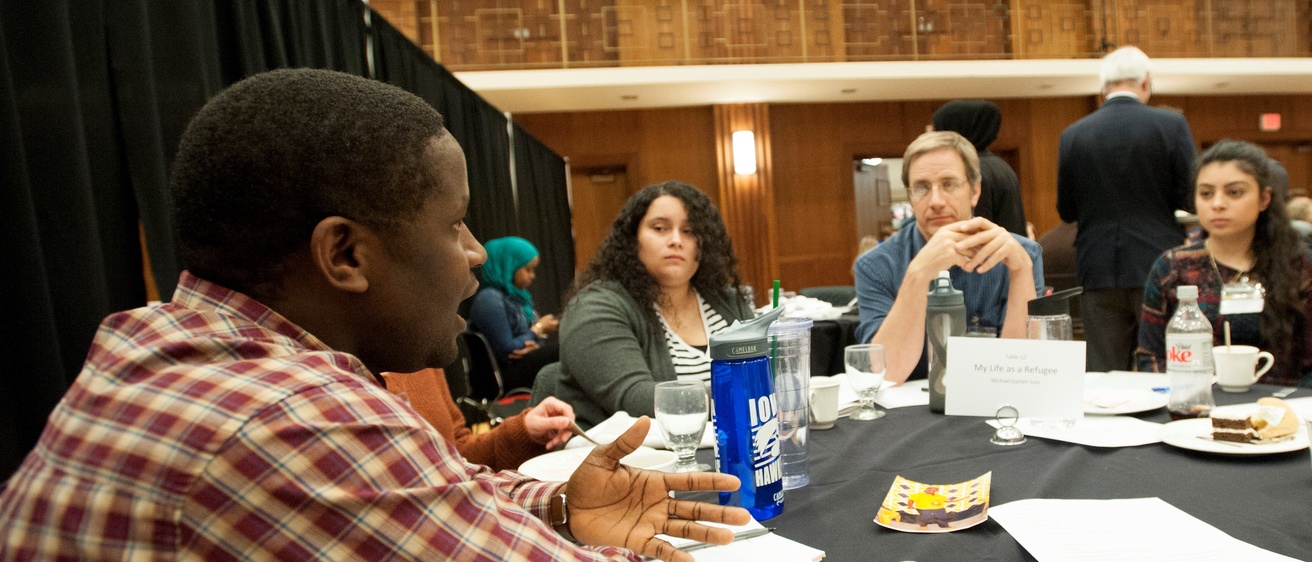The Global Health Studies Program strives to be the academic home for students and faculty who are interested in engaging with health and social justice, and who are passionate about understanding and influencing different determinants of health inequities to create meaningful positive changes in health outcomes both locally and globally.
The academic curriculum builds upon the humanities, social sciences, and health sciences to help students understand underlying forces—such as history, culture, gender and sexuality, economics, politics, race and ethnicity, the environment, law, and technology—which lead to health disparities worldwide. The program offers a Bachelor of Arts and a Bachelor of Science degree, an undergraduate minor, and an undergraduate and graduate certificate. All course offerings and more detailed requirements are available in the UI General Catalog.
The program promotes ethical experiential learning opportunities such as study abroad, internships, research, service learning, and capstone courses which allow students to develop real world skills related to major global health issues. These experiences help students define and achieve their post-graduation goals. By engaging in interdisciplinary approaches to real world health problems, students are prepared for careers which place a priority on improving health and achieving equity in health for all people worldwide.
Bachelor of Arts in Global Health Studies
The Bachelor of Arts in Global Health Studies prepares students for careers in local and international global health organizations, and for graduate and professional work in fields such as public health, law, planning and public affairs, social work, international development, sustainable agriculture, public policy, and more.
Learning Outcomes
- understand the core areas of global health such as infectious and non-communicable diseases, maternal and child health, food sovereignty, environmental health, and health inequities;
- analyze biomedical, social, cultural, and environmental determinants of health and disease;
- draw connections between significant health problems which affect both domestic and international communities;
- identify major global health organizations, actors, and ideologies; and
- recognize the ethical and practical challenges involved in interventions designed to improve health and health equity across cultural and geographical boundaries.
Want to get started?
Learn more about the program, including courses, curriculum, and requirements here.
Bachelor of Science in Global Health Studies
The Bachelor of Science in global health studies is excellent preparation for research-based careers, and professional programs in the health sciences.
Learning Outcomes
- understand the core areas of global health such as infectious and non-communicable diseases, maternal and child health, food sovereignty, environmental health, and health inequities;
- analyze biomedical, social, cultural, and environmental determinants of health and disease;
- draw connections between significant health problems which affect both domestic and international communities;
- identify major global health organizations, actors, and ideologies; and
- recognize the ethical and practical challenges involved in interventions designed to improve health and health equity across cultural and geographical boundaries.
Want to get started?
Learn more about the program, including courses, curriculum, and requirements here.
Minor in Global Health Studies
The minor in Global Health Studies provides the opportunity for students in any major to develop an interdisciplinary analysis of the social determinants of health, both locally and around the world.
Learning Outcomes
- identify major local and global health problems;
- apply interdisciplinary perspectives drawn from the social sciences and humanities to real world health issues; and
- recognize the ethical challenges involved in interventions designed to improve health and health equity across cultural and geographical boundaries.
Want to get started?
Learn more about the program, including courses, curriculum, and requirements here.
